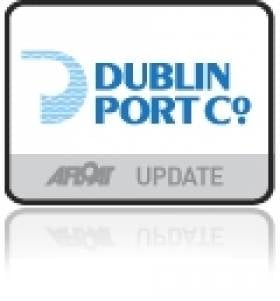Displaying items by tag: MSC Magnifica
#Cruiseliners -Discovery not only has the distinction of becoming the first cruise caller to Dublin Port in 2013 but also under the brand of Cruise & Maritime Voyages, writes Jehan Ashmore.
The 700 passenger capacity vessel docked today at Ocean Pier having departed her homeport of Avonmouth yesterday for the start of this year's cruise season.
Discovery of 20,000 tonnes and built in 1972 will be followed by fleetmate Marco Polo with a call on Friday to Dublin Port where the port is to welcome another record-breaking season with around 100 calls, with the Gathering being a major visitor draw.
As previously reported on Afloat.ie the giant 2010 built $547m MSC Magnifica of 95,000 tonnes which has more than 1,500 cabins accommodating a maximum 3,223 passengers, is to make her maiden 'Irish' call in late May.
The 294m 'Musica' class vessel is a larger fleetmate of Mediterranean Shipping Company's MSC Lirica, which last year also made a debut docking to Dublin Port and Cobh.
Other large callers to Dublin Port are Caribbean Princess, Celebrity Infinity and Queen Elizabeth which made her inaugural Irish call in 2011.
In addition The World, which also makes a return to the capital following her first ever call to Galway Harbour with an 'anchorage' call in early July.
Last year approximately 90 individual cruise calls were made to the capital which welcomed 100,000 passengers and brought between them €35-50m to the local economy.
With the increase in calls during 2013, the Dublin Port Company is to address future demand through its Masterplan 2012-2040, with a proposed new dedicated cruise terminal completed by 2015.
The facility would be sited along North Wall Quay Extension close to the East Link Bridge.





























































